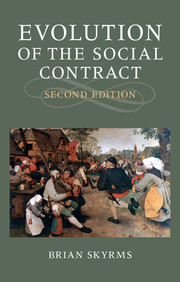4 - Correlated convention
Published online by Cambridge University Press: 05 November 2014
Summary
Before a man bit into two
foods equally removed and tempting, he
would die of hunger if his choice were free;
so would a lamb stand motionless between
the cravings of two savage wolves, in fear
of both; so would a dog between two deer;
thus, I need neither blame nor praise myself
when both doubts compelled me equally:
what kept me silent was necessity
– Dante, ParadisoTHE CURSE OF SYMMETRY
DANTE is recycling an ancient argument. Anaximander argued that the earth remained motionless in the center of the universe for lack of any reason for it to go one way or another. Socrates, in the Phaedo, endorses the relevant principle: A thing which is in equipoise and placed in the midst of something symmetrical will not be able to incline more or less towards any particular direction. Socrates anticipates the physicist Pierre Curie who, twenty-five centuries later, enunciated the general principle that the symmetries of causes reappear as symmetries of their effects. In the theory of rational decision, Curie’s principle takes on the character of a curse. It appears that decision makers cannot choose between symmetric optimal alternatives and must remain paralyzed in indecision. Where does the curse operate? How can it be broken?
- Type
- Chapter
- Information
- Evolution of the Social Contract , pp. 64 - 80Publisher: Cambridge University PressPrint publication year: 2014



